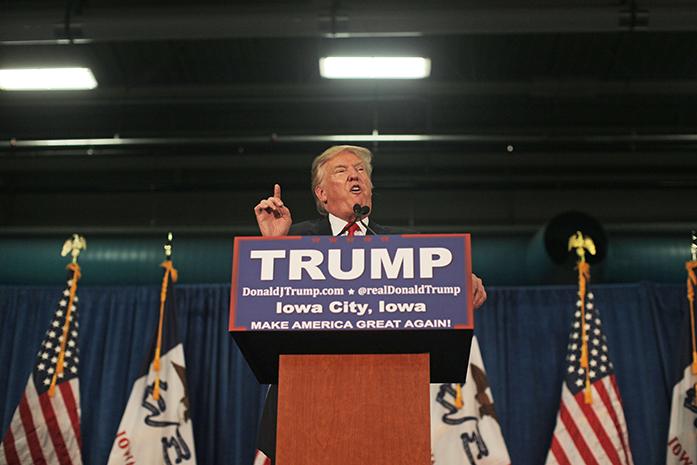By Vivian Medithi
I have looked at five election models today, and they all said different things. With days left until Nov. 8, the question of whether Democratic nominee Hillary Clinton or Republican nominee Donald Trump will take the Oval Office is one that weighs heavily on the American psyche. In an election driven by distaste, efforts to keep a candidate from the presidency seem more coordinated than those to elect one. Both “Never Hillary” shouters and Trump-haters are making political decisions from defensive positions out of fear rather than hope.
There is always voting third party, but your friends will ridicule you for “throwing away your vote.” But what if you could vote your conscience and support Clinton’s bid for presidency? If there was a way to vote for the candidate you most closely identify with, while still preventing the candidate you hate from winning office?
On the Democrats’ side, now you can. A website called trumptraders.org seeks to connect Democrat and third-party voters under a common goal of avoiding a Trump presidency. To this end, people are vote trading. Do not worry, it is not voter fraud, and it is perfectly legal.
Our elections are determined by the Electoral College, which means some votes invariably become worth more. Aside from Nebraska and Maine, states follow a winner-takes-all approach to Electoral College votes, meaning people who live in safely Republican or Democratic states have significantly less say in the election than those who live in swing states. Trumptraders aims to prevent a Trump presidency by trading third-party votes from swing states such as Ohio and Florida to static states such as California or Texas.
If this sounds suspect to you, no need to stress. Vote trading is essentially a specific form of political lobbying between people. Talking someone into voting for a candidate you support is the foundation of democracy. We earn votes by persuading people it is in their best interest to vote the way we would like them to. Vote trading is simply two people making a non-binding agreement on how they will vote.
Vote trading is not a new phenomenon, either. In the U.S., Trumptraders follows in the tradition of the turn of the millennium Nader traders, which sought to connect supporters of Ralph Nader and Al Gore in a similar manner. Vote trading is protected under the First Amendment as ruled by the 9th Circuit Court of Appeals in Porter v. Bowen, in a case stemming directly from the 2000 election. And in recent history, vote trading helped shift more than 1 million votes in the 2015 Canadian election, ultimately leading to the election of Prime Minister Justin Trudeau.
Even with a legal mandate, some still find the idea of vote trading unsavory. Some would object on puritanical grounds, declaring voting a precious right that should not be bartered with. While everyone’s personal feelings about their right to vote are different, voting is ultimately just a political tool to be leveraged in your interest as best as you can.
But others would object on the grounds that it subverts the Electoral College altogether, the system put in place by the Founding Fathers. Is it not unfair to let a person who lives in California vote in Ohio? Does not that undermine the spirit of the electoral system? The answer to both of these questions is yes, but that is not a bad thing. The Electoral College is unfair by design, taking voting power from the people and giving it to secret electors. It was put in place because the Founding Fathers didn’t think the American populace could be trusted to pick the best president.
To undermine the spirit of the Electoral College is to reject the idea that the governed are too stupid to know what is good for themselves. And yes, vote trading is unfair. But so is a system that weights how powerful people’s vote are by virtue of their zip code. Vote trading simply gives people a way to control how unfair the system is.



